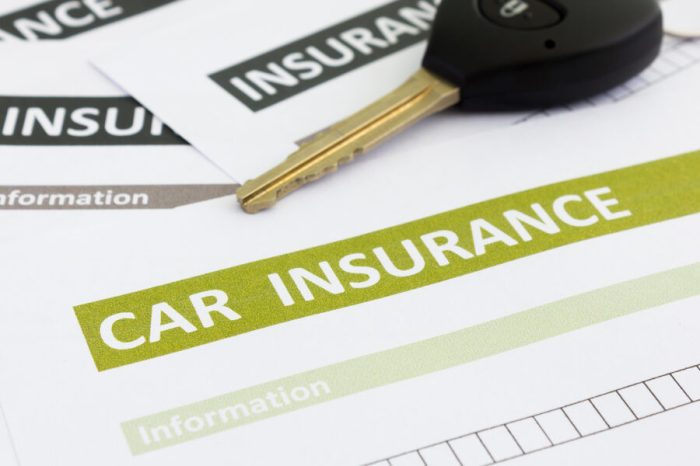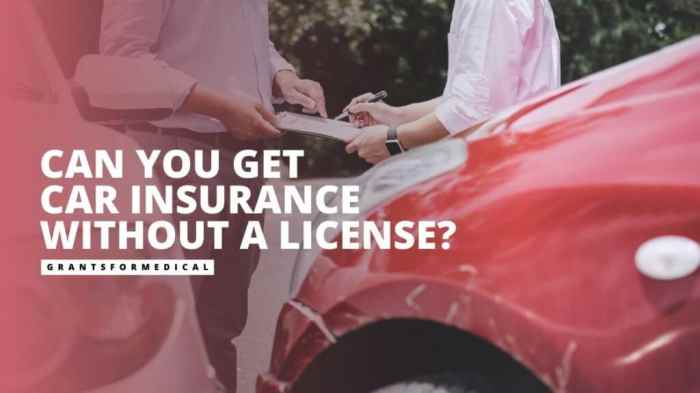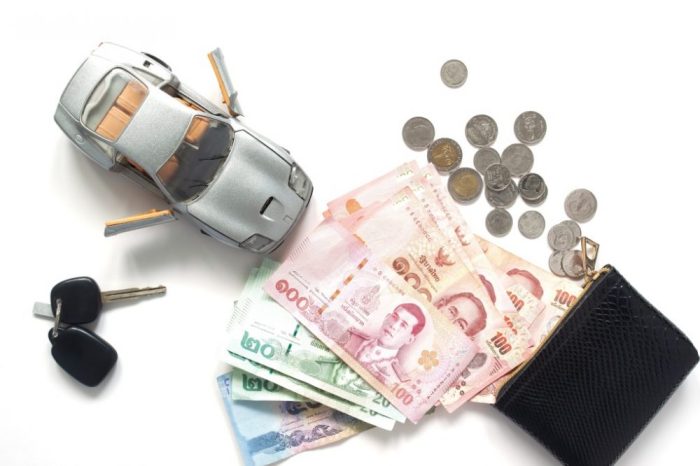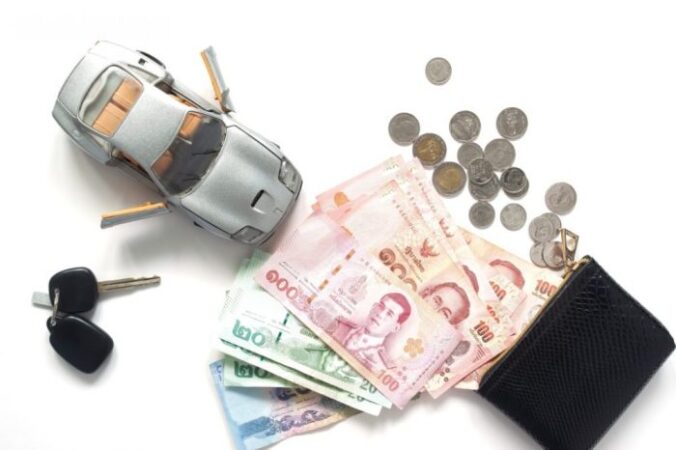
Can I get car insurance without a license in Texas? This question arises for individuals who may not have a driver’s license but still need insurance coverage. While it’s generally required to have a license to drive in Texas, certain insurance options are available for those without one. This article will explore the intricacies of obtaining car insurance in Texas without a driver’s license, delving into the specific requirements, available coverage, and legal considerations.
Texas law mandates that all drivers possess a valid driver’s license. However, the absence of a license doesn’t necessarily preclude you from securing car insurance. Insurance companies in Texas recognize that there are scenarios where individuals might need coverage even if they don’t hold a license. This could include situations where you own a vehicle but don’t drive it, or you’re a passenger in a vehicle owned by someone else.
Texas Driver’s License Requirements
To legally operate a motor vehicle in Texas, you must possess a valid driver’s license. The Texas Department of Public Safety (DPS) issues driver’s licenses, ensuring drivers meet the state’s safety standards.
Requirements for Obtaining a Texas Driver’s License
To obtain a Texas driver’s license, you must meet specific requirements. These include:
- Age: You must be at least 15 years old to apply for a learner’s permit and 16 years old to apply for a driver’s license.
- Residency: You must provide proof of residency in Texas, such as a utility bill or bank statement.
- Social Security Number: You must provide your Social Security number.
- Proof of Identity: You must provide a valid, government-issued photo ID.
- Passing a Vision Test: You must pass a vision test.
- Passing a Written Test: You must pass a written test on Texas traffic laws.
- Passing a Driving Test: You must pass a driving test, demonstrating your ability to safely operate a vehicle.
Consequences of Driving Without a Valid License in Texas
Driving without a valid driver’s license in Texas is a serious offense with severe consequences. These consequences can include:
- Fines: You can be fined up to $200 for driving without a license.
- Jail Time: In some cases, you may face jail time, especially if you have previous offenses.
- Vehicle Impoundment: Your vehicle may be impounded.
- Increased Insurance Rates: Your insurance rates may increase.
- Points on Your Driving Record: Points will be added to your driving record, which can lead to license suspension or revocation.
Types of Driver’s Licenses in Texas
Texas offers various driver’s licenses, each serving a specific purpose. These include:
- Class C Driver’s License: This is the most common type of driver’s license in Texas, allowing you to operate most passenger vehicles.
- Class A Driver’s License: This license allows you to operate commercial vehicles, such as semi-trucks.
- Class B Driver’s License: This license allows you to operate commercial vehicles, such as buses and trucks with a gross vehicle weight rating of 26,001 pounds or more.
- Motorcycle License: This license allows you to operate motorcycles.
- Learner’s Permit: This permit allows you to practice driving under the supervision of a licensed driver.
Car Insurance Basics
Car insurance is crucial in Texas, offering financial protection against potential risks associated with owning and operating a vehicle. It safeguards you from financial burdens arising from accidents, injuries, and property damage, ensuring peace of mind while driving.
Types of Car Insurance Coverage
Understanding the different types of car insurance coverage available in Texas is essential for choosing the right protection.
- Liability Coverage: This coverage is mandatory in Texas and protects you financially if you cause an accident that results in injuries or damage to another person’s property. It includes bodily injury liability and property damage liability.
- Collision Coverage: This coverage helps pay for repairs or replacement of your vehicle if it’s damaged in an accident, regardless of who’s at fault. It’s optional but highly recommended.
- Comprehensive Coverage: This coverage protects your vehicle against damage caused by non-collision events such as theft, vandalism, fire, or natural disasters. It’s optional but crucial for safeguarding your investment.
- Uninsured/Underinsured Motorist Coverage: This coverage provides financial protection if you’re involved in an accident with an uninsured or underinsured driver. It covers your medical expenses and property damage.
- Medical Payments Coverage: This coverage pays for your medical expenses, regardless of fault, if you’re injured in an accident. It’s optional but can be helpful for covering medical bills beyond your health insurance.
- Personal Injury Protection (PIP): This coverage, available in Texas, helps cover medical expenses and lost wages if you’re injured in an accident, regardless of fault. It’s optional but can be valuable for comprehensive protection.
Minimum Car Insurance Requirements in Texas
Texas law requires all drivers to carry a minimum amount of liability insurance. The minimum requirements are:
- Bodily Injury Liability: $30,000 per person / $60,000 per accident
- Property Damage Liability: $25,000 per accident
These minimum requirements are designed to provide basic financial protection in case of an accident. However, it’s highly recommended to carry higher limits to protect yourself from significant financial losses.
Insurance Options for Non-Licensed Drivers
While it’s generally required to have a driver’s license to operate a vehicle in Texas, there are situations where you might need car insurance even if you don’t have a license. This could be because you’re a passenger in a car owned by someone else, or you’re the owner of a car that’s not being driven.
Insurance Options for Non-Licensed Drivers
Individuals without a driver’s license can still obtain car insurance, but the process and available options might differ from those for licensed drivers.
Types of Coverage for Non-Licensed Drivers
– Liability Coverage: This is the most common type of insurance and is generally required by law. It covers damages and injuries caused to others in an accident, regardless of who’s at fault.
– Collision Coverage: This coverage pays for repairs to your car if it’s damaged in an accident, regardless of who’s at fault. It’s usually optional, but it can be beneficial if you’re a passenger in a car owned by someone else and it’s involved in an accident.
– Comprehensive Coverage: This coverage pays for repairs to your car if it’s damaged due to non-collision events, such as theft, vandalism, or natural disasters. It’s also usually optional.
Factors Considered by Insurance Companies
Insurance companies typically consider the following factors when determining the cost of insurance for non-licensed drivers:
- Age and Driving Experience: While you may not have a driver’s license, your age and driving experience can still be considered. If you’ve been driving for a significant period, even without a license, you might be eligible for a lower premium.
- Driving History: If you have a history of accidents or traffic violations, your insurance premiums will likely be higher.
- Vehicle Type and Value: The type and value of the car you’re insuring will also affect your premiums.
- Location: Where you live can impact your insurance rates, as some areas have higher rates of accidents and crime.
- Credit Score: Your credit score can be used by insurance companies to assess your risk. A good credit score can result in lower premiums.
Obtaining Insurance without a Driver’s License
To obtain insurance without a driver’s license, you’ll need to provide the insurance company with information about your driving history, the car you’re insuring, and your personal details. You may also be required to provide proof of financial responsibility, such as a bond or certificate of deposit.
Finding an Insurance Provider
It’s important to shop around and compare quotes from different insurance providers. You can contact insurance companies directly or use an online comparison tool to get quotes from multiple providers.
SR-22 Insurance: Can I Get Car Insurance Without A License In Texas
SR-22 insurance is a type of financial responsibility insurance that serves as proof of liability coverage for drivers who have been convicted of certain driving offenses. In Texas, it’s required by the Texas Department of Transportation (TxDOT) to ensure drivers can pay for damages caused in accidents.
Purpose of SR-22 Insurance in Texas
SR-22 insurance serves as a guarantee that the driver can financially cover the cost of damages and injuries caused in an accident. It ensures that the driver is financially responsible for their actions on the road.
Circumstances Requiring SR-22 Insurance, Can i get car insurance without a license in texas
SR-22 insurance is mandatory in Texas for drivers who have:
- Been convicted of driving under the influence (DUI) or driving while intoxicated (DWI)
- Had their driver’s license suspended or revoked for a traffic violation
- Been involved in a hit-and-run accident
- Failed to provide proof of financial responsibility
Obtaining SR-22 Insurance
To obtain SR-22 insurance, you need to contact an insurance company and inform them about your situation. They will file an SR-22 form with the TxDOT on your behalf. The insurance company will also provide you with a certificate of insurance that you can use to reinstate your driver’s license if it was suspended.
- Contact an Insurance Company: You can contact any licensed insurance company in Texas that offers SR-22 insurance. Some companies specialize in high-risk drivers.
- Provide Necessary Information: You’ll need to provide your driver’s license information, vehicle information, and details about your driving violations.
- Pay the Premium: SR-22 insurance premiums are typically higher than standard car insurance premiums because of the higher risk associated with drivers who require this type of insurance.
- Receive the SR-22 Form: Once your application is approved, the insurance company will file an SR-22 form with the TxDOT.
- Receive Your Certificate of Insurance: You will receive a certificate of insurance from the insurance company that you can use to reinstate your driver’s license.
Note: SR-22 insurance is typically required for a specific period, usually for a few years, depending on the nature of the driving offense. It’s important to maintain your SR-22 insurance throughout the required period to avoid further penalties.
Insurance Coverage for Non-Owned Vehicles
In Texas, you may need insurance even if you don’t own a car. This is because you can still be held liable for accidents if you’re driving someone else’s vehicle. This is where non-owned vehicle insurance comes into play.
Non-owned vehicle insurance provides coverage when you’re driving a car you don’t own. It’s an optional add-on to your regular car insurance policy. This type of insurance is particularly important if you frequently borrow or rent cars.
Types of Coverage for Non-Owned Vehicles
Non-owned vehicle insurance typically covers the same types of risks as regular car insurance. These include:
- Liability coverage: This protects you financially if you cause an accident while driving a non-owned vehicle. It covers the other driver’s medical bills, property damage, and legal expenses.
- Collision coverage: This pays for repairs to the non-owned vehicle if you’re in an accident, regardless of who’s at fault.
- Comprehensive coverage: This protects you against damage to the non-owned vehicle from events like theft, vandalism, or natural disasters.
- Medical payments coverage: This covers your medical expenses if you’re injured in an accident while driving a non-owned vehicle.
- Uninsured/underinsured motorist coverage: This protects you if you’re hit by an uninsured or underinsured driver.
Situations Where Non-Owned Vehicle Insurance is Necessary
Here are some examples of situations where non-owned vehicle insurance may be necessary:
- Borrowing a friend’s or family member’s car: If you frequently borrow a car from a friend or family member, it’s a good idea to have non-owned vehicle insurance. This will protect you in case of an accident.
- Renting a car: When you rent a car, the rental company will typically provide basic liability insurance. However, you may want to consider additional coverage for collision, comprehensive, and medical payments.
- Driving a company car: If you drive a company car for work, your employer may have insurance coverage in place. However, you may still need non-owned vehicle insurance for personal use of the company car.
Legal Implications

Driving without a license in Texas is a serious offense with potential legal consequences. It is crucial to understand the risks involved and the possible penalties you could face if you are caught driving without a valid license.
Consequences of Driving Without a License
Driving without a license in Texas can lead to various consequences, including fines, license suspension, and even jail time. The severity of the penalties will depend on the circumstances of the offense, such as whether it is a first offense or a repeat offense.
Fines and Penalties
- First Offense: A first offense for driving without a license in Texas typically results in a fine of between $50 and $200, depending on the county. Additionally, you may be required to complete a driver education course.
- Repeat Offenses: Subsequent offenses for driving without a license can result in higher fines and penalties, including possible jail time. For example, a second offense could lead to a fine of up to $500 and up to 180 days in jail.
- Driving While License Suspended: If your license has been suspended and you are caught driving, the penalties can be significantly harsher. This could include a fine of up to $2,000, a jail sentence of up to two years, and the potential for your vehicle to be impounded.
Consequences of an Accident
If you are involved in an accident while driving without a license, the consequences can be even more severe. In addition to the penalties mentioned above, you may also face:
- Civil Liability: You could be held liable for any damages or injuries caused by the accident, even if the accident was not your fault.
- Higher Insurance Premiums: If you are able to obtain insurance, your premiums will likely be significantly higher than those of licensed drivers.
- Difficulty Obtaining Insurance: Some insurance companies may refuse to insure you if you do not have a valid driver’s license.
It is important to remember that driving without a license is not only illegal but also extremely dangerous. You are putting yourself and others at risk by driving without the necessary training and skills.
Alternative Transportation Options

Living without a driver’s license in Texas can present challenges when it comes to getting around. Fortunately, there are various alternative transportation options available that can help you navigate your daily life.
Public Transportation
Public transportation offers a cost-effective and environmentally friendly way to travel.
- Bus Services: Texas has extensive bus networks, including the Metropolitan Transit Authority (METRO) in Houston, the Dallas Area Rapid Transit (DART) in Dallas, and the Capital Metro in Austin. These services provide frequent routes connecting various neighborhoods and cities.
- Light Rail: Cities like Dallas, Houston, and San Antonio offer light rail systems that provide a faster and more efficient mode of transportation compared to buses. These systems typically run on dedicated tracks, minimizing traffic delays.
- Ride-Sharing Services: Services like Uber and Lyft are popular options for door-to-door transportation. They offer flexible scheduling and convenient pick-up and drop-off locations. However, the cost can vary depending on distance and time of day.
Ride-Sharing Services
Ride-sharing services like Uber and Lyft provide a convenient and flexible way to get around.
- Flexibility: You can request a ride at any time, anywhere, with no fixed schedules or routes. This makes them ideal for spontaneous trips or when public transportation options are limited.
- Accessibility: Ride-sharing services are often accessible in areas where public transportation is less frequent or unavailable. They can also be helpful for people with disabilities or mobility issues.
- Cost-Effectiveness: While the cost can vary depending on distance and demand, ride-sharing services can be more affordable than owning a car, especially for occasional trips.
Taxis
Taxis are a traditional mode of transportation that is widely available in urban areas.
- Reliability: Taxis are typically available 24/7, offering a reliable option for getting around, even during late hours or in emergencies.
- Safety: Taxis are regulated and licensed, providing a sense of safety and security for passengers.
- Convenience: Taxis offer door-to-door service, eliminating the need to walk long distances or navigate complex public transportation systems.
Cycling
Cycling is a great way to get exercise and explore your surroundings.
- Health Benefits: Cycling is a low-impact form of exercise that can improve cardiovascular health, reduce stress, and boost mood.
- Environmentally Friendly: Cycling is a sustainable mode of transportation that doesn’t produce emissions.
- Cost-Effective: Cycling requires minimal investment, especially if you already own a bicycle.
Walking
Walking is the simplest and most accessible form of transportation.
- Health Benefits: Walking is a great way to stay active and improve your overall health.
- Cost-Effective: Walking is free, making it a budget-friendly option.
- Environmental Friendliness: Walking has no environmental impact, making it a sustainable mode of transportation.
Finding Reliable and Affordable Transportation
- Public Transportation Apps: Use apps like Google Maps or Transit to plan your routes, track real-time bus schedules, and find the most convenient options.
- Ride-Sharing Discounts: Look for promotional codes or discounts offered by ride-sharing services to reduce your travel expenses.
- Carpooling: Consider carpooling with friends, family, or colleagues to share the cost of transportation and reduce traffic congestion.
- Community Resources: Contact your local community center or senior center for information on transportation services for seniors or individuals with disabilities.
Last Point

Navigating the world of car insurance without a driver’s license in Texas can be a complex endeavor. Understanding the specific requirements, available options, and potential legal implications is crucial. While acquiring insurance without a license is possible, it’s essential to explore your options thoroughly, consult with insurance professionals, and ensure you have adequate coverage for your specific circumstances.
Top FAQs
What are the minimum car insurance requirements in Texas?
Texas requires drivers to have liability insurance, which covers bodily injury and property damage to others. This typically includes $30,000 for bodily injury per person, $60,000 for bodily injury per accident, and $25,000 for property damage.
Can I drive someone else’s car if I don’t have a driver’s license?
No, it’s illegal to drive someone else’s car in Texas without a valid driver’s license. You could face fines and penalties, and the owner of the vehicle could also be held liable.
How can I get SR-22 insurance in Texas?
SR-22 insurance is typically required after a DUI conviction or other serious traffic violation. You can obtain SR-22 insurance through a licensed insurance agent or broker.
What is non-owned vehicle insurance?
Non-owned vehicle insurance provides coverage for individuals who drive vehicles they don’t own, such as rental cars or borrowed vehicles. It can provide liability and collision coverage for the vehicle.





